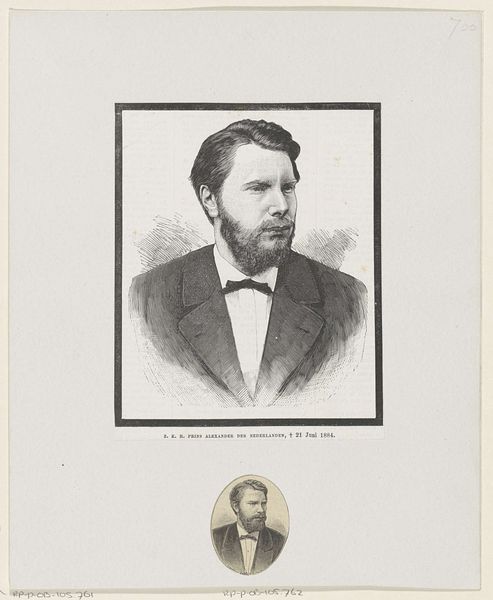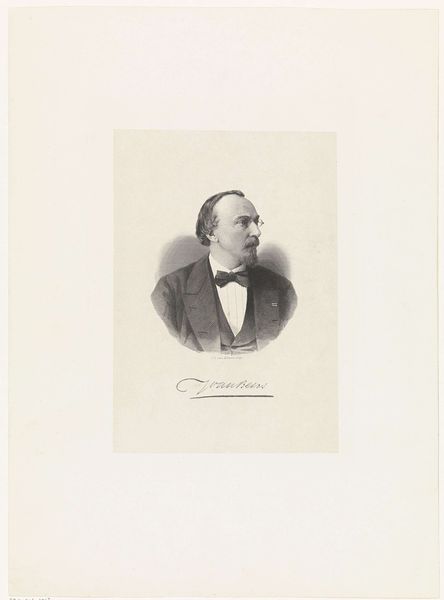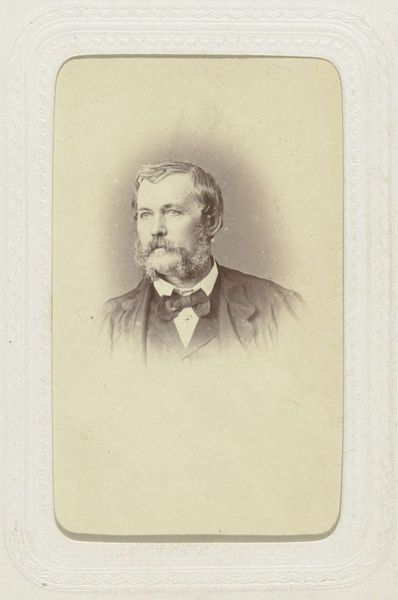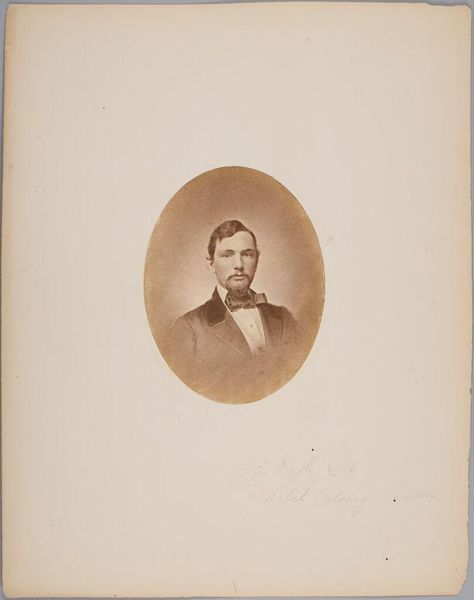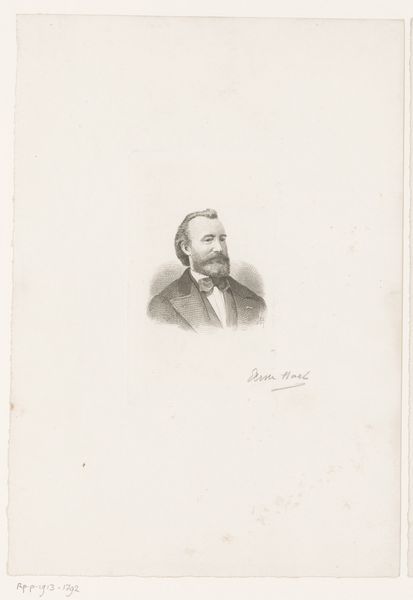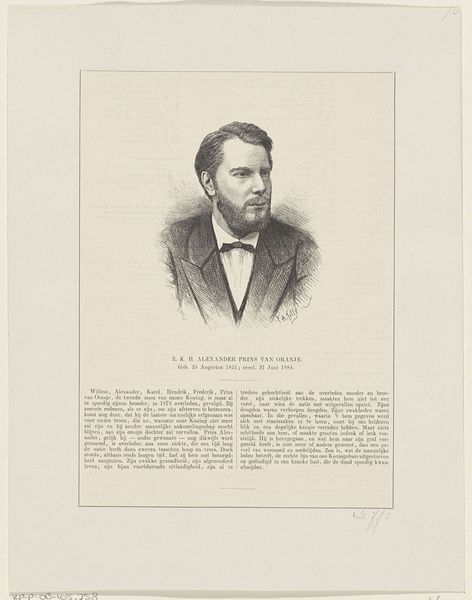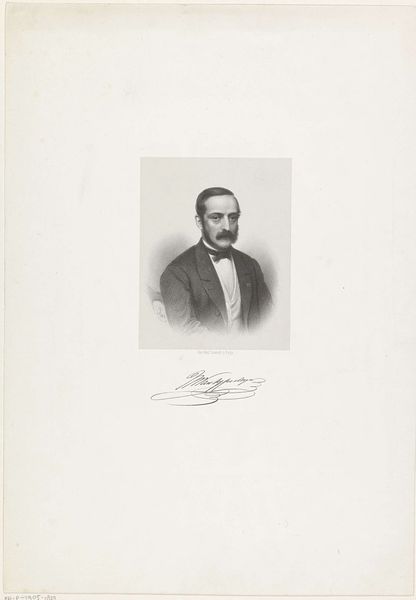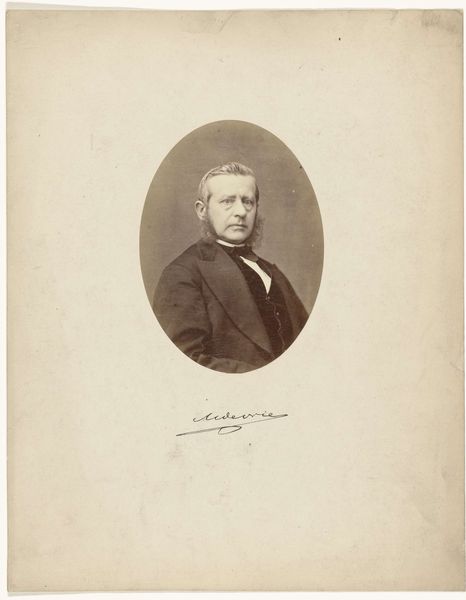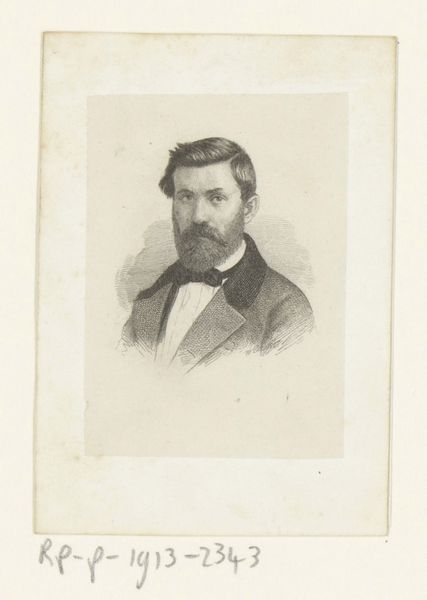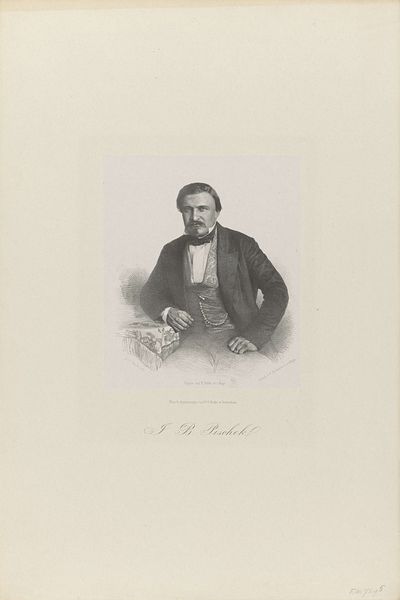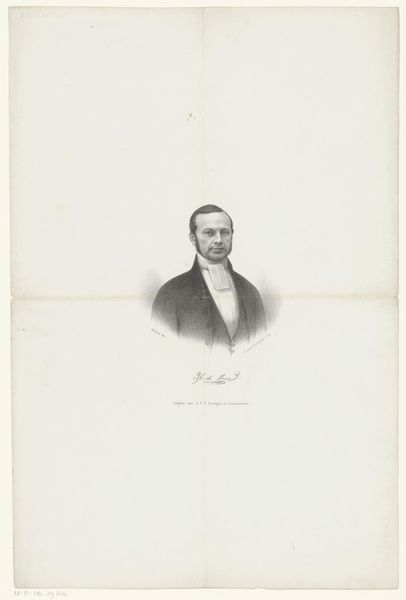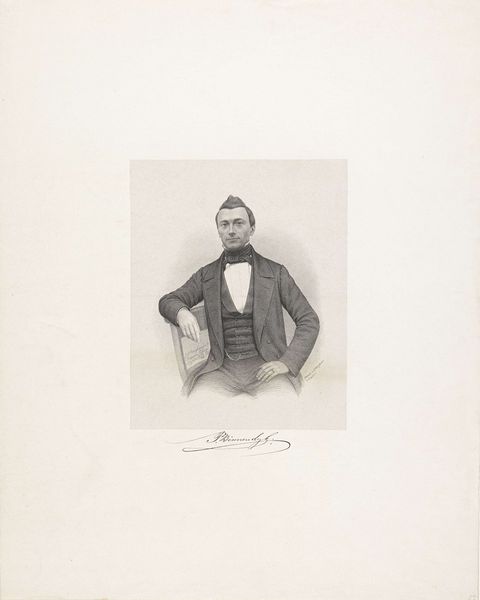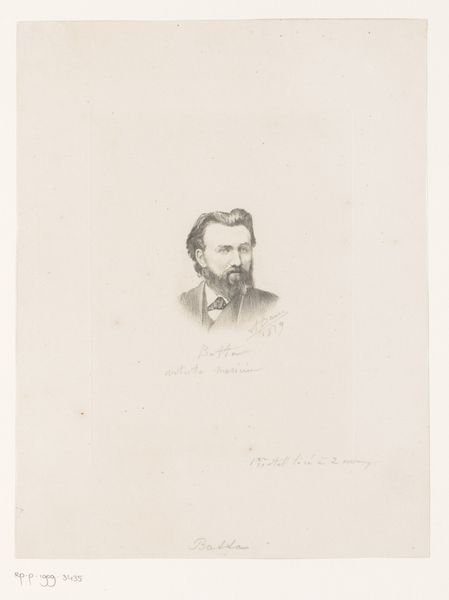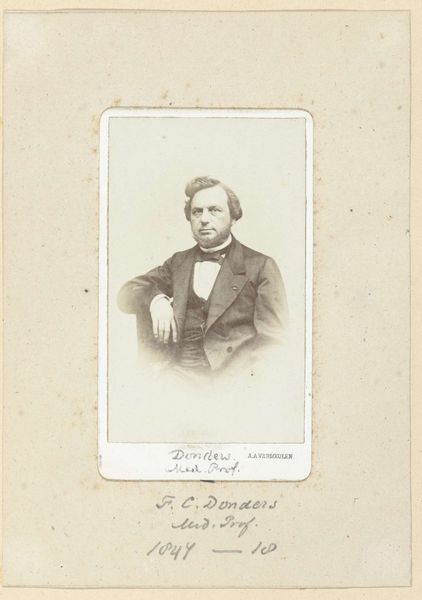
print, engraving
#
portrait
# print
#
old engraving style
#
history-painting
#
academic-art
#
engraving
#
realism
Dimensions: height 158 mm, width 107 mm
Copyright: Rijks Museum: Open Domain
Editor: Here we have an engraving, “Portret van Alexander, prins der Nederlanden,” or “Portrait of Alexander, Prince of the Netherlands,” produced sometime between 1870 and 1949 by an anonymous artist. There’s a formality to it, from the prince’s dress to the laurel wreath around the oval frame. What kind of image was this meant to project? Curator: Consider the moment this print was produced. Photography was still becoming widely accessible; prints like these served an important function in image circulation, specifically of important public figures. Who had access to it and where might this portrait have been displayed? Editor: Presumably, this image would have been widely disseminated among the upper classes, potentially gracing the walls of parlors or appearing in illustrated magazines. I wonder what purpose such images served within society at that time? Curator: These types of portraits acted as tools to reinforce and disseminate an idea of monarchy. This print wasn't simply about likeness; it was a deliberate construction of an image to shape public perception and power dynamics. Do you notice how the Prince isn't doing anything at all? Editor: I do, that’s interesting… It’s almost clinical; he isn't holding anything or positioned in a dynamic pose. Just existing, essentially. What would be the intention of this portrayal? Curator: Perhaps to underscore the inherent nobility of his very being, separate from action. This highlights the institutional function of art in solidifying class structures. Editor: I see. So, an image, in this case a print, can really embody power and the era that it represents. That's insightful! Curator: Indeed. By analyzing how institutions use art, we see how art creates and reinforces history, one image at a time.
Comments
No comments
Be the first to comment and join the conversation on the ultimate creative platform.
